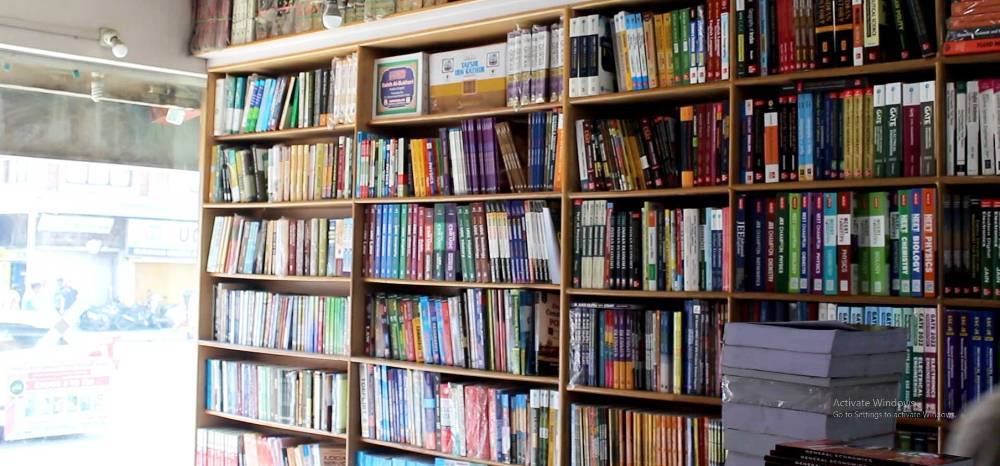[ad_1]
An improvement in the literacy rate is not changing the age-old trend of avoiding books within and outside the classrooms. With the section of the population that was passionate about book reading has gone digital thus adding to the crisis, reports Umima Reshi
“He does not desire or want knowledge. He will not, out of his own curiosity, ask questions or seek answers. He wants a degree. He wants to pass. He wants a title even if it’s only a failed BA. So he is a parrot,” Tyndale Biscoe, whose contributions to education in Kashmir, are enormous, told visiting Canadian journalist Allan Gordon Sinclair (June 3, 1900 – May 17, 1984) in 1932, explaining the crisis is beset with in teaching Kashmir. “He learns answers to certain questions by heart, and that is all he cares about. Deeply as I regret it, he steals much of his knowledge and then promptly forgets it.”
This trend within and outside classrooms has kept book reading the least priority in Kashmir. In a section of society, book reading is a “luxury” or an “abuse of time”. With the internet now offering more avenues to study, the book still remains a low-priority item.
With a more than 67 per cent literacy rate, the book is still not in demand, Even in classrooms, “notes” and “guides” are more in demand than books – even for the teachers. In 2022, from a population of 13 million, officials said 2.26 lakh people visited 131 public libraries across Jammu and Kashmir.
“When shoes get trendy shops in key markets and the best books are sold on streets in the flea market, one journalist quipped, “it is a clear indication of the deep-rooted decay manifesting a societal decline.”

With the perfection of internet-driven communication technology, no doubt, people are very well informed. Now societies including Kashmir are consuming huge data. Nokia Mobile Broadband Index (MBiT) report for 2022 suggested the average data consumer in India requires huge data now. The consumption has reached 19.5GB per user per month. In Kashmir, which has cell phone penetration crossing 90 per cent, the consumption will be much higher than the national average.
The data consumption, however, does not mean book reading has improved. Apart from the requirements of seeking or delivering services as part of their jobs, most people use the data for entertainment – music, movies, comedy and other things. Book is still not an attraction even though news thirst has gone many notches up.
Like in the rest of the world, the use of the internet for news, knowledge, entertainment and work evolved during the Covid19 pandemic. Caught in lockdown and quarantines, people perfectly landed in the virtual world. With the passage of time, the data consumers’ attention span has gone down and they avoid reading longer write-ups. Instead, they prefer to watch figures, graphics and small videos. “If people talk about a particular novel, my first idea is to locate any film that is based on that,” one young student from an arts background said. “It is too frightening to read 300-500 pages. It is better to watch the film instead.”
For its beauty and politics, Kashmir is one of the regions that has been extensively written about. Interestingly, the contribution of natives in wider Kashmir literature is quite minimal, outside the cultural spheres.
However, a small section of the population continues to thrive in books. “Reading was my childhood habit that has now become a passion and reading is influencing my career choices,” Anika, an avid book reader, said. “At the end of a tiring day, I can’t think of looking at a screen. And out of other conventional forms of entertainment, books have been one of the best things for me to gain contentment and shape my brain.”
Anika owns a trendy phone but asserted she uses it for contacting others. “Whatever source of information I have or I require, I get it from the newspaper or magazine. I do not really prefer internet sources, because there was a life before it and people have forgotten how to live without it. They don’t cherish what is in front of them, but believe what is on their phones.”
Given the trend, she might be part of a small section of students. Most students in Kashmir only read strictly as per their syllabus. Even students enrolled for literature tend to find easier ways to study like reading through PDFs, pre-prepared notes, or learning through social media, one senior teacher admitted.
Not many people know that books offer a safe alternative to reducing screen time. Overexposure to cell phones and computer screens has already started showing up. Optic issues are quite common now.
“In the larger run, the essence of knowledge that lies in a book cannot be obtained through any ameliorated gadget. The more books you read, the more you shape your brain, ” the teacher said. “With the advent of automation and audiobooks, reading is already suffering a decline, but it can get adverse in near future. We are moving towards a generation where kids will be able to use all automated gadgets but won’t be able to even pronounce a word.”
[ad_2]
#Shelf
( With inputs from : kashmirlife.net )